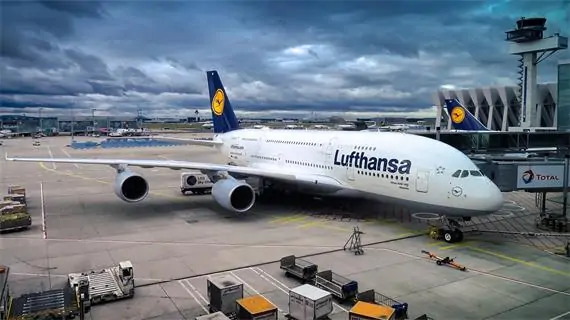Factors that Cause Shipment Delays in China

Factors that Cause Shipment Delays in China
Shipment delays are a real headache to deal with. They prove to be a nuisance both for companies, as well as consumers. When delays come, complaints and losses of income are sure to follow. On the other hand, avoiding setbacks mean increase growth for you and your business.
As someone who deals with shipping and deliveries daily, I often get asked: “What causes shipment delays?” To answer this question, here is a guide that tackles the reality regarding this annoying issue.
What Are Shipment Delays?
Before tackling the different factors concerning shipment delays, we need to define the term first. Shipment delays occur when packages are delivered late to a consumer. Such an event should not happen in an ideal company setting, as it can lessen customer satisfaction as well as overall profits. Delays can also come in the form of delivered goods which are damaged, incorrect, or faulty. In any case, these are issues that should be lessened, if not avoided, at all costs.
Types of Shipment Delays
There are two types of shipment delays in the industry, and these are Manufacturing and Delivery delays.
Manufacturing Delays
These are delays that stem from the generation or production process of ordered goods. The factory responsible for the generation is responsible for this issue. These can come in the form of a shortage in the workforce or raw materials required.
Manufacturing delays mainly exist in companies or factories responsible for the creation of the product. Such problems include machines, human error, existing systems, and even the workforce. Sometimes, the governing body may be the main source of interruptions in the flow of production.
Delivery Delays
These are delays that result from different cargo problems. Such issues include loading, unloading, improper packaging and batching, or harsh handling of goods during the travel period. Usually, deliveries can be tracked in real-time, so any user can see the status of their expected packages.
To fully avoid shipment delays, you must look at both the production process as well as the delivery system of your chosen company. Both should work together without neglecting the other to ensure smooth operations.

Factors That Cause Shipment Delays In China
Key Factors affecting delays
#1: Management Issues
Management issues can either be a manufacturing or delivery delay. This is defined by various problems in the governance of the organization assigned to create or ship your goods. Most management issues come from inefficient programs or systems which slow down the process of end-to-end delivery.
Improper handling of customer priority is a possible scenario coming from this factor. A clear example of this is Customer A ordering ahead of Customer B, but Customer B getting his/her delivery first despite the difference in time.
Another one is if the personnel in charge of the procurement of raw materials are unable to do the task in time. When this gets delayed, all the speed of production is greatly impeded. Thus, there must be an efficient process in ensuring that everything needed to manufacture is present.
Forecasting is also an important part of lessening management issues. If a company can properly predict the number of orders and shipments that they need to work on, the existence of this factor will not be a problem.
#2: Manpower
Lack of manpower is considered a manufacturing delay. It is defined as the shortage of people who are needed to accomplish a specific task. When this occurs in a factory or company, it could imply that they are not doing great in terms of profit and income as they are unable to sustain the flow of production.
Calamities such as the COVID pandemic as well as other economic issues may affect the manpower of any establishment. There is also a chance of reduced productivity as more companies resort to work-at-home settings for safety measures. For example, many Chinese companies have cut down on workers since the onset of the pandemic, and knowing which of them have recovered from the calamity will be a great advantage.
Once a workforce is crippled, other types of delays are sure to arrive as well. Thus, it is good to make sure that your chosen factory or company has enough personnel to deliver your packages. Never engage with organizations who are short on the workforce, as it will bring more harm than benefits to you and your operations.
#3: Equipment and Machinery
Equipment and machinery are a type of manufacturing delay. In our current world, automation is the prime mover of efficiency and productivity. Thus, pieces of machinery need to work well since failure to do so will surely result in setbacks. Unmaintained devices will greatly impede a factory’s ability to produce its quota. There is also a need to look out for the quality of the machine components, as well as training involved in handling operations.
For example, a factory with fully upgraded machines and production lines is more likely to prevent shipment delays compare to those which use outdated systems. it is important to look at companies that adopt more modernized systems than those which are stuck in the traditional way of thinking. This factor can also be an avenue to look at the possible potential or growth of a company that you will deal with.
#4: Quality control
Quality control can be considered as both manufacturing and shipment delays. In manufacturing, quality can affect schedules if a batch of orders has defects that render them unable to be sent to consumers. This fosters the need for repeated creation of the said goods.
In shipment, a material’s quality can deteriorate if improper methods of delivery are employed. For example, if fragile products get tossed around during loading and unloading, chances are it will result in RTS (Return-to-Seller) scenarios. RTS should always be avoided as it will mean loss of income and profit, as well as hassles in dealing with redelivering the package.
There is a great need for both factory and delivery company to handle orders well to ensure that the order-taking to door-to-door shipment will not result in subpar products. Even if a package is well-made, it can still be ruined by reckless delivery processes. You must not only look at the production quality, but you should also examine the performance of the company’s chosen shipment service.

Factors that Cause Shipment Delays in China
#5: Queue processes
Improper queue processing can exist both in the manufacturing and shipping parts of orders. This can come in the form of inefficient batching, grouping, or prioritizing of order lists.
In the case of a factory, bad queue processes involve mass-production of goods even if users have not ordered them yet. This will cause delays since consumers need to wait for a longer time to claim their packages.
In the case of a shipping center, an improper grouping of orders based on location due to human errors might exist. For example, if my order was meant for New York but it was placed in the New Jersey batch, delays will surely bombard me.
Most queue processes are a result of human error, and they can be avoided with proper optimization of systems.
#6: Force Majeure
The existence of violent forces of nature is a form of a shipping delay. Typhoons, snowstorms, or floods are very likely to delay your goods. Unfortunately, there is no way to tell when or where these things will happen. However, good factories which have ample experience in management and deliveries will have contingencies if ever these problems appear.
For example, your shipment might not have any manufacturing or delivery delay during the process. However, the existence of roadblocks coming from trees swept during a huge typhoon will surely set your deliveries back for a few days or even weeks.
How to Avoid Shipment Delays?
The best way to steer clear from shipment delays is to avoid companies that are inefficient in doing their tasks. This entails the right amount of research as well background checks to know which of them are competent enough to produce on-time deliveries.
This can be a hard task especially if you are researching an offshore organization with limited information on the internet. Proper verification and identification of red flags will also result in great benefits for you and your business. It is better to let professionals do this task for you, as they are more equipped to handle the gathering, analyzing, and presenting of data for your chosen company.
What we do in Verifyfull
Verifyfull is a leading provider of reliable Chinese Company information and verification that partners with different brands and importers to make sure that they only deal with trustworthy suppliers.
We provide transparency in all our reports, meaning that everything will be laid down for your convenience. You can consider us as your pair of eyes in the Chinese industry, as we practice the highest degree of passion, integrity, and honesty in all our transactions.
To help you avoid companies that are known to have delays, you contact us, and we will be more than grateful to reach out to you.

Factors that Cause Shipment Delays in China


